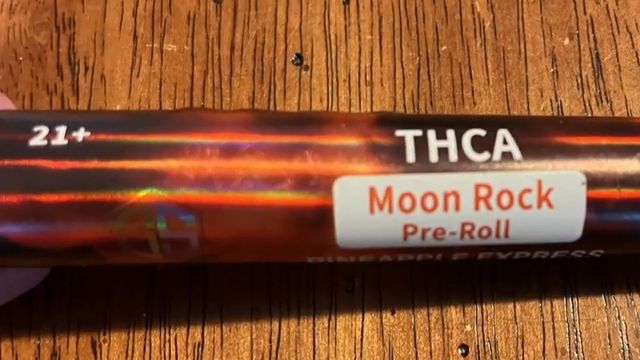NC cracks down on use of candy brands for snacks that could get you high
The North Carolina Secretary of State's Office on Tuesday announced it had seized nearly $170,000 worth of counterfeit snacks – treats infused with THC, the chemical that makes marijuana potent, but using legitimate brands like Skittles, Fritos, AirHeads and Oreos.
“These THC-infused edibles are packaged using counterfeit snack brands that are particularly popular with children and teenagers,” said N.C. Secretary of State Elaine F. Marshall. “This growing trend is dangerous for our communities and it’s important to raise the overall awareness of this issue with parents and all residents around North Carolina.”
The Secretary of State's Office noted that snacks are "packaged to look like regular food, candy, chips and other sweets. Many times the labels feature a cartoon character or other images attractive to children."
Marshall said, “Halloween is a time when our children are consuming more candy and sweets, so it’s particularly important if parents have THC-infused products in their homes to lock them away like other medications or cleaning products."
She is worried that children will see these labels and make themselves ill.
"If they see this package laying on the counter and it contains these THC gummies, they don't have enough filter to not eat all of them," she said.
"The packages are so attractive that children are easily seduced into thinking it's OK to eat the contents. It's a very dangerous situation out there that parents really need to be aware of."
WRAL Investigates found that even snacks that claim to contain legal, allowable levels of CBD can be misleading and dangerous.
In a test of five products purchased in Raleigh and Cary, four contained more or different chemicals than their labels claimed, and four of five were not legal to be sold in North Carolina.
There are no laws that require testing of CBD products, so it is impossible for a buyer to know what they are getting without a chemical test.
Michael Horton who tests products for Raleigh-based Delta 9 Analytical told WRAL Investigates, "If you’re expecting a 30 milligram gummy and you ingest 500 milligrams, that changes your day. If you eat something like that and aren’t expecting it, I’d go to the hospital."
Marshall says even retailers can be fooled. "Many of them say they don't know" what the products they sell actually contain, she said.
According to America’s Poison Centers, formerly known as the American Association of Poison Control Centers, reports of cannabis edible poisonings in children 12 and under have increased nearly 700% since 2018. In 2022, there were 6,379 reports to poison control centers compared to 816 in 2018.
Cannabis chemistry: What is hemp, marijuana, CBD, THC, Delta 8?
Marijuana: A slang term for cannabis, a species of plant
CBD: Cannabidiol (CBD) is something you can extract from both marijuana and hemp.
Hemp: A cannabis product with .3% or less THC
THC: Tetrahydrocannabinol (THC) is the primary psychoactive ingredient in marijuana. It is also in hemp, but it makes up less than .3%.
Delta 8: A shortened name for Delta 8 THC. Delta 8 is found in trace amounts in marijuana and hemp, but can be made by changing CBD genetics to increase potency.
Delta 9 THC: This is what makes you feel high. Delta 9 is more powerful than Delta 8 and more prevalent in marijuana.
Delta 10 THC: Similar to Delta 8 in that's it's only found in trace amounts. Users claim it offers a different type of high.
All of the Delta products are somewhat similar, they just have slightly different chemical structures.
THCA: Tetrahydrocannabinolic acid (THCA) is the precursor to THC. When heated over a flame, cooked or in a vape, THCA converts to Delta 9. Often used to make gummies.












